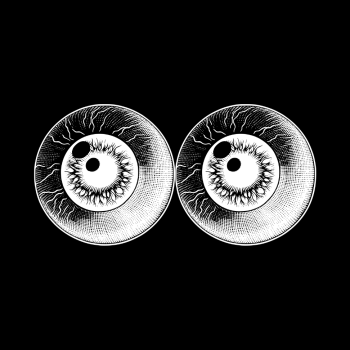 Lubavitch Hasidism
Lubavitch Hasidism
Hebrew gives us three distinct and paradoxical words for a cemetery: 1) beit havkarot, meaning a home for burial; 2) beit olam, meaning a home of eternity; and 3) beit hachaim, which means a home for the living. Why the need for three different words?
The way we define death stems directly from the way we define life. If life is merely about tending to the appetites of our bodies and hearts -- then death, that unfathomable moment when the body turns lifeless, constitutes the tragic cessation of life. The cemetery, then, is a home for burial. A life has, sadly, reached its final chapter.
But there is another possible perspective: seeing life as a spiritual experience in addition to a physical one. If being alive is also about nurturing and nourishing our souls, our spiritual identity, our inner spark of God, then death, as irrevocable as it is, is not the interruption of life.
Tragic and horrendously painful? Absolutely yes. The end of one's existence? Absolutely not. The soul, which is an aspect of G-d, a fragment of the divine, is not subject to death. It travels from one realm of experience to another. In this perception, a cemetery is a home of eternity. The body is interred, but the soul remains eternal.
Yet there is something even greater we can achieve. If we -- the children, students, friends, relatives, and communities left behind -- use the passion and values of those no longer with us to inspire our daily lives and behavior, then the cemetery becomes a "home for the living." Our loved ones continue to exist in a very tangible way, in the earthly lives of the people touched by their love and commitments.
Rabbi Yosef Y. Jacobson
Instructor, Rabbinical College Chovevay Torah, Brooklyn
Modern Orthodox
The Bible is overwhelmingly focused on this life. Humans are commanded to live the good life, here and now, in harmony with God and Creation.
It remained for the Talmud to develop the limited references to a future life into a full-blooded statement of the immortality of the soul. The medieval Jewish tradition shifted the focus so that earthly life was viewed as fleeting years lived primarily to become worthy of the eternal blessing of Heaven (Gan Eden).
Modern liberal Jewish theology shifted the focus back to this life. Even Modern Orthodox figures like Joseph B. Soloveitchik stressed the centrality of this worldly life and religiosity, stating in his book Halachic Man that holiness means "the holiness of earthly here-and-now life."
The ironic result of this shift -- intensified by the modern emphasis on biblical thought and the widespread ignorance of Talmudic and medieval sources -- is that many liberal Jews have never heard any teaching about the soul, eternal life, or existence beyond the grave. Often they have been taught that it is precisely this worldly emphasis that constitutes Judaism's superiority over Christianity, which is portrayed as an otherworldly faith, anti-pleasure and anti-body.
Many liberal Jews are shocked to hear from traditional Jews that Judaism does, after all, teach immortality of the soul and offer the promise of eternal bliss with God and reunion with the beloved departed.
Practically speaking, what should a Jew believe? We should harness the blessings of modernity to keep us focused on the strand of classic Judaism that gives central importance to human life, fully embodied life. This tradition emphasizes tikkun olam. It follows the Talmudic dictum that a person will be judged for every (legitimate) pleasure in his life that he/she failed to enjoy. At the same time, we need to break the tyranny of materialism and allow ourselves to accept the promise of eternal spiritual life.
Can we know and describe the streets of heaven or the fires of hell? No. But we can put our trust in God that there is final justice, an ultimate balance in existence.
Rabbi Yitz Greenberg
President of the Jewish Life/Steinhardt Foundation
Sephardic Orthodox
In Pirkei Avot (Ethics of Our Fathers), Rabbi Jacob taught, "This world is like a lobby, a waiting room for the world to come." This teaching suggests that our lives here on earth are one long journey toward an ultimate destination.
Where is this "world to come," and what kind of life is lived there? On these questions, the Talmud quotes a verse from the prophet Isaiah: "No eye has seen these things, O God, except for you." Maimonides adds that only God -- and nobody else -- knows the actual grandeur, beauty, and spiritual strength of this mysterious place our sages call Olam HaBa.




